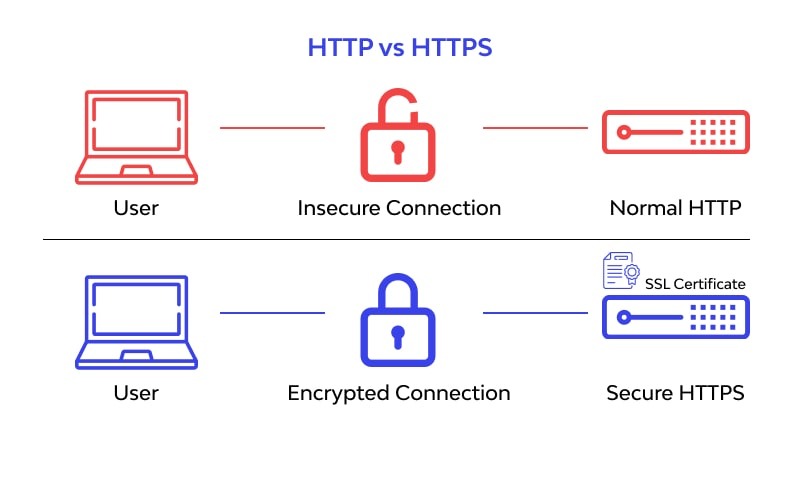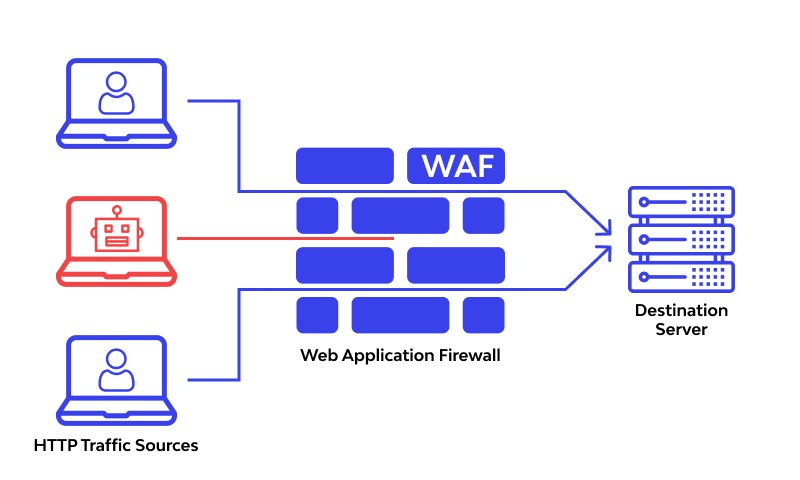Have you ever built a site and felt super glad of it… as it were to abruptly stress almost programmers? That was me. I thought fair having a secret word was sufficient. But at that point, I learned the difficult way that site security is way more than that. In this web journal, I’ll share everything I’ve learned almost securing websites—from my claim encounters to master tips. I’ll keep it basic, clear, and real—just like I wish somebody had done for me!
What is Website Security?
Website security implies keeping your location secure from cyber assaults. It secures your records, your clients, and your information from being stolen or broken. It’s like locking your domestic at night. You wouldn’t take off your front entryway wide open, right?
Primary Objective: Site security keeps programmers, malware, and infections absent from your site.
Why Site Security is Important

When I to begin with built my web journal, I didn’t stress much. But one day, my location went down. A companion told me, “Your location might’ve been hacked.”
I froze! That’s when I caught on why security matters:
Genuine Threats of Not Having Site Security
- Your information can be stolen
- Your site may crash
- Google might boycott your site
- Visitors might see risky warnings
- You seem lose believe and money
I never needed that once more, so I chosen to learn and secure my site.
Best Hones for Site Security
You don’t require to be a tech wizard to keep your location secure. I wasn’t. I begun with basic steps and gradually included more.
Let’s break it down into simple parts.
Utilize Solid Passwords and Alter Them Often
I utilized to utilize “123456” for everything (yes, truly). Not anymore!
- Use at slightest 12 characters
- Mix letters, numbers, and symbols
- Change your secret word each 2-3 months
Expert Tip:
Cybersecurity master Troy Chase says, “A solid watchword is your to begin with line of defense.”
Keep Computer program, Topics, and Plugins Updated
- Outdated program = open entryway for hackers.
- Always overhaul your CMS (like WordPress)
- Remove unused plugins and themes
- Use official or well-rated plugins
I once had a subject that was 2 a long time ancient. Programmers utilized it to break into my site.
Utilize Site Security Scanners to Check Vulnerabilities
- These are like a wellbeing check for your site.
- Tools like Sucuri and SiteLock filter your site
- They check for malware, broken code, and open doors
My go-to: I utilize Sucuri’s free scanner once a week!
Introduce an SSL Certificate (HTTPS Encryption)

- SSL = Secure Attachments Layer. Sounds favor? It’s not!
- It’s the “S” in HTTPS. It scrambles information so no one can take it.
- Google adores HTTPS sites
- Your clients feel safe
- It appears a lock symbol in the browser
“SSL isn’t discretionary anymore,” says Google’s Webmasters team.
Utilize Two-Factor Confirmation (2FA)
Passwords can be speculated. But 2FA includes an additional layer.
- Even if somebody takes your watchword, they can’t log in
- You get a code on your phone to endorse login
- I utilize Google Authenticator for all my locales now.
Restrain Login Endeavors and Square Suspicious IPs
Bots cherish attempting once more and once more. Don’t let them.
- Limit to 3-5 login tries
- Use apparatuses like Wordfence or Constrain Login Endeavors Reloaded
- Block bizarre countries/IPs that spam you
Continuously Reinforcement Your Site (So You Do not Lose Everything)
I learned this the difficult way when my location crashed.
- Backup every day or weekly
- Use devices like UpdraftPlus, JetBackup, or CodeGuard
- Store reinforcements on Google Drive or Dropbox
Utilize a Firewall and Web Application Firewall (WAF)

- A firewall is like a watch puppy. It squares terrible traffic.
- Use a WAF like Cloudflare or Sucuri Firewall
- Stops DDoS assaults, bot activity, and known threats
My Beat Devices for Site Security
Here are devices I actually utilize and trust:
- Tool Name Purpose Free Option
- Sucuri Scanner Malware scan
- Wordfence Firewall + malware + 2FA
- Cloudflare CDN + DDoS protection
- UpdraftPlus Easy backups
- Google Auth Two-Factor Authentication
Master Suppositions on Site Security
I come to out to a few cybersecurity masters for tips.
Rahul Tyagi, Co-Founder of Secure Security says:
“Website proprietors must get it that aggressors don’t continuously target huge destinations. Indeed little blogs get hacked each day.”
Eva Galperin, EFF’s Executive of Cybersecurity:
“The least demanding way to remain secure is to upgrade everything—constantly. That alone stops most attacks.”
Genuine Encounter: How I Spared My Site
One night, my location was moderate. At that point pages begun appearing blunders. My companion told me it might be malware. I utilized a scanner and found two contaminated records. Fortunately, I had a reinforcement. I reestablished it, cleaned the subject, and included a firewall.
From that day, I take after my security checklist weekly.
Site Security Checklist (Simple to Follow)
- Solid passwords
- Two-factor authentication
- Normal backups
- SSL certificate
- Constrain login attempts
- Expel unused plugins/themes
- Utilize a firewall
- Check location weekly
- Upgrade software
- Observe traffic/IPs
FAQs Around Site Security
What is the most fundamental site security step I ought to take?
Start with an SSL certificate and a solid secret word. That’s the least demanding and most capable to begin with step.
Can my little web journal truly get hacked?
Yes. Programmers utilize bots that filter thousands of locales a day, huge or small.
How do I know if my location is hacked?
- Look for signs like:
- Your location is slow
- You see peculiar pop-ups
- Google appears a “not safe” warning
- Pages divert to other websites
Can free plugins secure my site?
Yes, numerous free plugins like Wordfence and Sucuri are incredible for beginners.
How regularly ought to I check my site security?
Weekly! Fair like brushing teeth, normal care keeps issues away.
Last Considerations: Site Security is Like Brushing Your Teeth
I utilized to think site security was as well specialized. Presently I see it like brushing my teeth—simple, standard care goes a long way. You don’t have to be a tech master. If I can do it, so can you. Begin little. Do one thing nowadays. At that point another tomorrow. Your website—and your peace of mind—will thank you.



